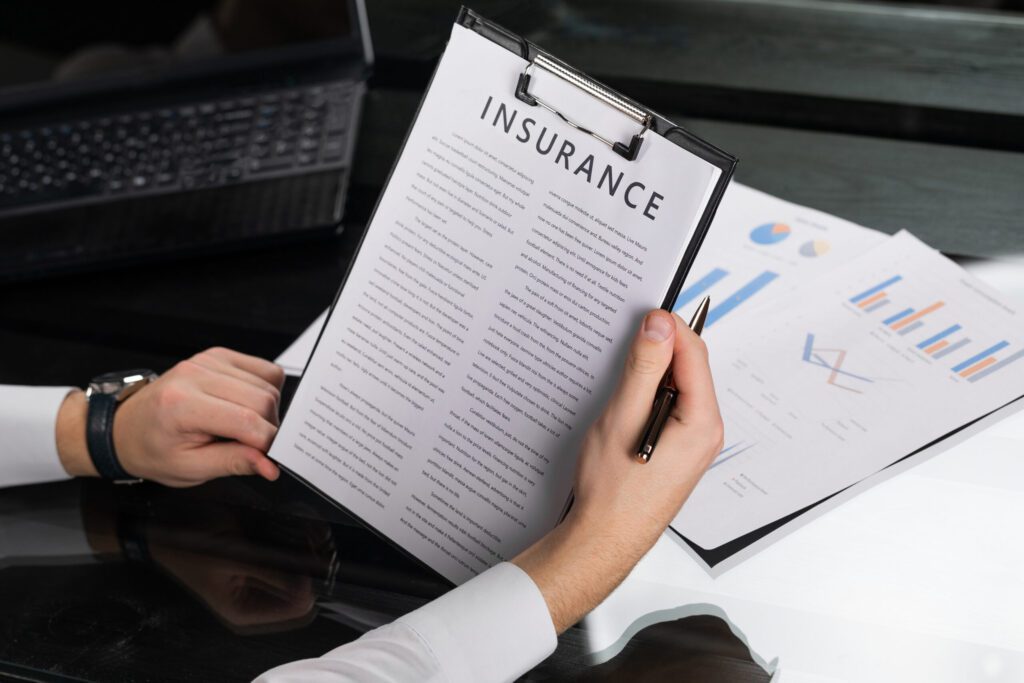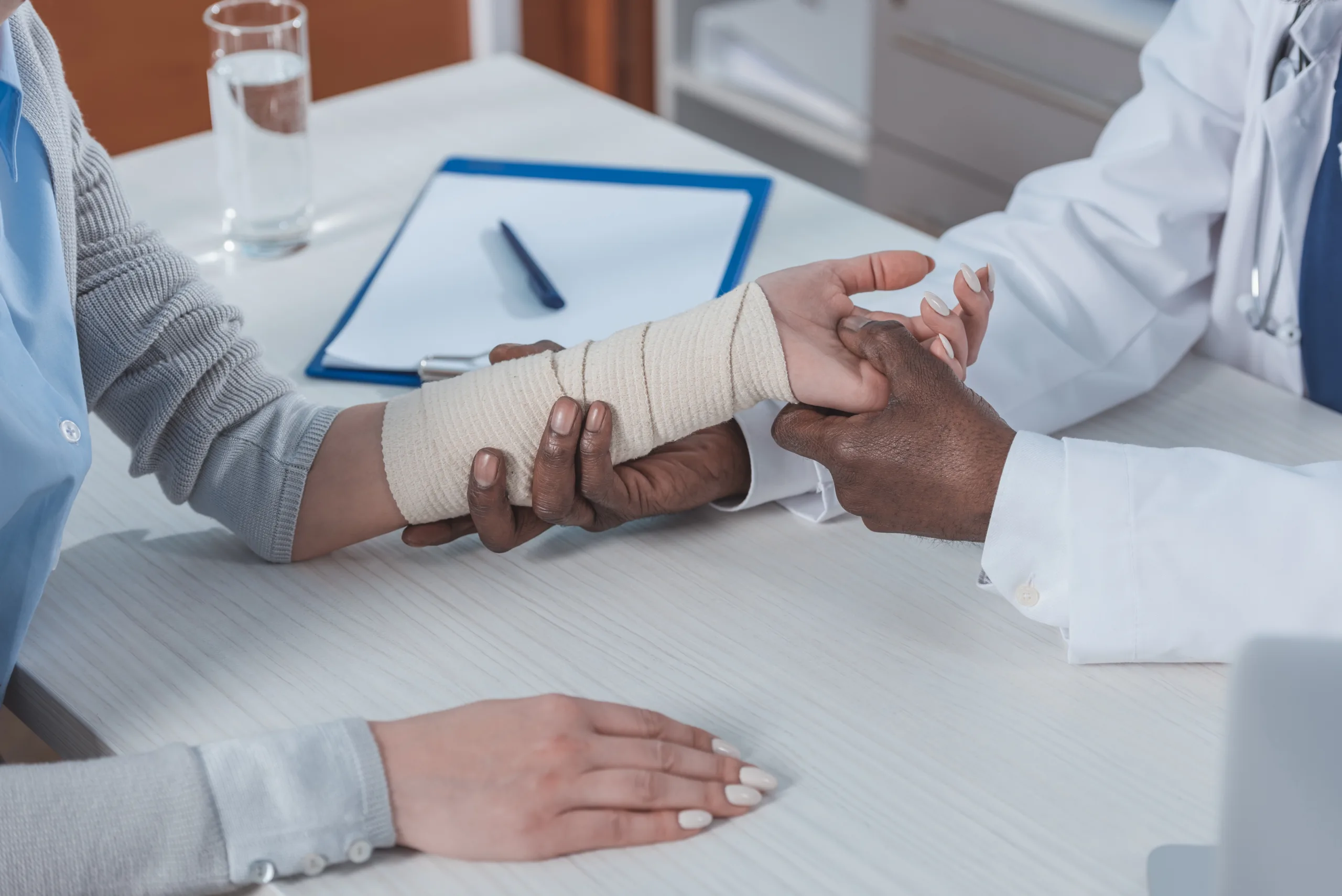Legal Help in Ensuring Your Insurance Claim Remains Intact By Avoiding Common Errors
Insurance is difficult due to policies, premiums, claims, and legalities. Avoiding key elements or underestimating their relevance can have unforeseen repercussions. Insurance claim errors can lead to personal injury claim denials or inadequate compensation when you need it most. This guide gives you the skills to traverse this complex world confidently.
A personal injury insurance claim is a legal process for recovering losses or injuries caused by another party’s negligence. This insurance claim is usually filed against the responsible party’s liability insurance. Personal injury claims seek compensation for medical bills, lost wages, pain and suffering, and other losses caused by the accident.
Key Summary:
- Insurance involves policies, premiums, claims, and legalities, and overlooking details can lead to unintended consequences, affecting your maximum compensation.
- Personal injury refers to harm caused by the negligence of another, resulting in a right to compensation. Various situations, such as traffic accidents, premises liability, product liability, medical malpractice, and workplace accidents, can lead to personal injuries.
- Individuals suffering personal injuries may be entitled to compensation, covering medical expenses, lost wages, pain and suffering, and property damage.
- Auto, homeowner’s, product liability, and professional liability (malpractice) claims are common personal injury claims.
- From incident occurrence to negotiation, settlement, or legal action if necessary, understanding the process is vital for a fair resolution.
- Pitfalls such as delaying reporting, neglecting medical attention, settling too quickly, and undervaluing damages can jeopardize your claim.
Obtaining insurance is vital to protecting yourself, your loved ones, and your assets. However, the road to comprehensive protection is riddled with potential pitfalls that can affect your maximum compensation.
What is Personal Injury?
Personal injury is harm or damage to a person’s body, mind, or emotions caused by another’s negligence or intentional action. In civil law, it refers to injuries that warrant compensation. Injured parties often seek compensation in personal injury cases.
Personal injuries can arise from various situations, including:
- Traffic Accidents: Such as car accidents, motorcycle accidents, and pedestrian accidents.
- Premises Liability: Injuries on another person’s property, such as slips and falls or dog bites.
- Product Liability: Injuries caused by defective or unsafe products.
- Medical Malpractice: Harm caused by the negligence of healthcare professionals.
- Workplace Accidents: Injuries sustained on the job.
Individuals who suffer personal injuries may be entitled to compensation for:
- Medical Expenses: Including hospital bills, medication, and rehabilitation costs.
- Lost Wages: Compensation for income lost due to the inability to work.
- Pain and Suffering: Non-economic damages for physical and emotional distress.
- Property Damage: Compensation for personal belongings, vehicles, or other property damage.
Personal injury cases often involve negotiations with insurance companies, and if a settlement is not reached, the injured party may file a lawsuit. Understanding the concept of personal injury is crucial for individuals who have suffered harm due to the actions of others.
Personal Injury and Insurance Claims
Individuals file personal injury insurance claims for injuries or damages caused by another party’s negligence or malicious actions. These claims are prevalent in insurance, and different policies may apply depending on the damage. Some common personal injury insurance claims:
- Auto Insurance Claims: In cases of car accidents, the at-fault party’s liability insurance typically covers bodily injury and property damage suffered by the other party.
- Homeowner’s Insurance Claims: When injuries occur on someone’s property, such as slip and fall accidents, the property owner’s homeowner’s insurance may provide coverage.
- Product Liability Claims: If a defective product causes injury, the manufacturer’s liability insurance may be involved in compensating the injured party.
- Professional Liability (Malpractice) Claims: The healthcare professional’s malpractice insurance may cover damages in medical malpractice cases.
Seeking legal advice and assistance, especially when dealing with complex personal injury insurance claims can help you protect your rights and maximize your chances of receiving fair compensation for your injuries and losses.
Personal Injury Insurance Claim Process
Whether you’ve experienced a vehicular accident, a slip and fall, a product-related injury, or any other personal injury incident, understanding the dynamics of the insurance claim process is crucial. Here are the key components and steps involved in a personal injury insurance claim:
-
Incident Occurrence
The personal injury claim process begins with an incident that causes harm to an individual. This could include car accidents, slips and falls, workplace injuries, or any situation where someone’s negligence leads to harm.
-
Seeking Medical Attention
After the incident, the injured party should seek prompt medical attention. Medical records are crucial in establishing a direct link between the incident and the injuries sustained.
-
Gathering Evidence
It’s important to collect evidence related to the incident, including photographs, witness statements, police reports (if applicable), and any other documentation that supports the claim.
-
Notifying the Insurance Company
The injured party or their legal representative must notify the insurance company of the at-fault party about the incident. This typically involves filing a claim with the responsible party’s liability insurance.
-
Insurance Investigation
The insurance company investigates to assess the validity of the claim. This may involve reviewing evidence, obtaining statements, and evaluating the extent of damages and injuries.
-
Evaluation of Damages
Damages in a personal injury claim can include medical expenses, lost wages, property damage, pain and suffering, and other related losses. Both parties may negotiate or independently assess the value of these damages.
-
Negotiation and Settlement
Many personal injury claims are resolved through negotiation between the injured party and the insurance company. If a fair settlement is reached, the injured party agrees not to pursue further legal action in exchange for compensation.
-
Legal Action (if necessary)
Legal action may be initiated if a settlement cannot be reached or if the injured party is dissatisfied with the offered amount. This involves filing a lawsuit against the at-fault party, and the case may proceed to court.
-
Trial and Judgment
If the case goes to trial, both parties present their evidence, and a judge or jury makes a final determination. The judgment may include a monetary award to compensate the injured party for their losses.
-
Collection of Compensation
If a settlement or judgment is reached in favor of the injured party, they receive compensation for their damages. This may come in the form of a lump sum or structured payments.
The complexity of personal injury insurance claims can vary, and depending on the jurisdiction and the nature of the incident, different procedures may apply. It is common and recommended to seek legal counsel, particularly in more complex matters or when the insurance company is putting up a fight.
Common Mistakes to Avoid When Dealing with Insurance Companies
Dealing with insurance companies in personal injury claims can be delicate and intricate, requiring vigilance and strategic decision-making. To maximize the chances of a fair and satisfactory resolution, it’s crucial to avoid common mistakes that could jeopardize your claim. Here are some pitfalls to steer clear of when interacting with insurance companies in personal injury cases:
-
Delaying Reporting of the Incident
Failure to report the incident promptly to the relevant insurance company can lead to complications, delays, and potential claim denials. Ensure timely notification to initiate the claims process.
-
Neglecting Medical Attention
Delaying or avoiding seeking medical attention after an injury not only jeopardizes your health but also weakens the connection between the incident and your injuries in the eyes of insurers.
-
Providing Recorded Statements Without Legal Advice
Insurance adjusters may request recorded statements. Be cautious and avoid providing statements without legal representation, as statements may be used to minimize your claim.
-
Undervaluing or Overlooking Damages
Failing to accurately assess the full extent of damages, including medical expenses, lost wages, and pain and suffering, can result in inadequate compensation. Thoroughly document and assess all losses.
-
Settling Too Quickly
Accepting an initial settlement offer without comprehensively evaluating your damages can be a critical mistake. Consult with professionals to ensure you are not settling for less than your claim is worth.
-
Lack of Documentation
Inadequate incident documentation, injuries, and related expenses weaken your case. Record everything thoroughly, including medical records, bills, correspondence, and photographs.
-
Overlooking Policy Details
Failing to review and understand the terms of your insurance policy can lead to misunderstandings about coverage limits and exclusions. Familiarize yourself with the specifics of your policy.
-
Not Seeking Legal Advice When Needed
Complex personal injury cases may benefit from legal representation. Neglecting to seek legal advice when facing challenges or disputes with the insurance company can hinder your ability to secure fair compensation.
-
Accepting Blame or Apologizing
Avoid admitting fault or apologizing for the incident, as these statements can be used against you. Stick to providing facts and avoid making statements that could be misconstrued as an admission of liability.
-
Ignoring Social Media Caution
Refrain from discussing your case or sharing details on social media. Insurance companies may use social media posts to dispute claims or minimize damages.
-
Failure to Follow Medical Advice
Not following prescribed medical treatments or failing to attend necessary appointments can be used by insurers to argue that your injuries are not as severe as claimed.
-
Assuming All Adjusters Are Advocates for You
Remember that insurance adjusters work for the insurance company, not for you. While they may seem helpful, their primary goal is to minimize the company’s liability.
-
Inadequate Communication
Failing to maintain clear and consistent communication with the insurance company may result in delays or misunderstandings. Respond promptly to inquiries and requests for information.
Avoiding these common mistakes can significantly enhance your position when dealing with insurance companies in personal injury claims. Being proactive, well-documented, and informed will contribute to a smoother claims process and increase the likelihood of a fair outcome.
Avoid Insurance Claim Mistakes With Our Monroe Personal Injury Attorney!
As you deal with your personal injury insurance claim, partnering with experienced professionals such as E. Orum Young Law Personal Injury Attorneys can be a significant decision. Our experience and insights can provide invaluable guidance, helping you avoid common pitfalls and ensuring your rights are protected throughout the claims process.
With E. Orum Young Law, you not only gain a dedicated ally in your pursuit of fair compensation but also benefit from our wealth of experience in handling a variety of personal injury cases including car wrecks, 18-wheeler collisions, public bus accidents, and more. Dealing with insurance companies requires an extensive approach, and having a Louisiana personal injury attorney on your side can make a substantial difference.
Your journey toward justice and recovery is critical, and by avoiding common insurance claim mistakes and leveraging professional assistance, you stand on firmer ground in your quest for the compensation you rightfully deserve. Contact us today for a free case review!






